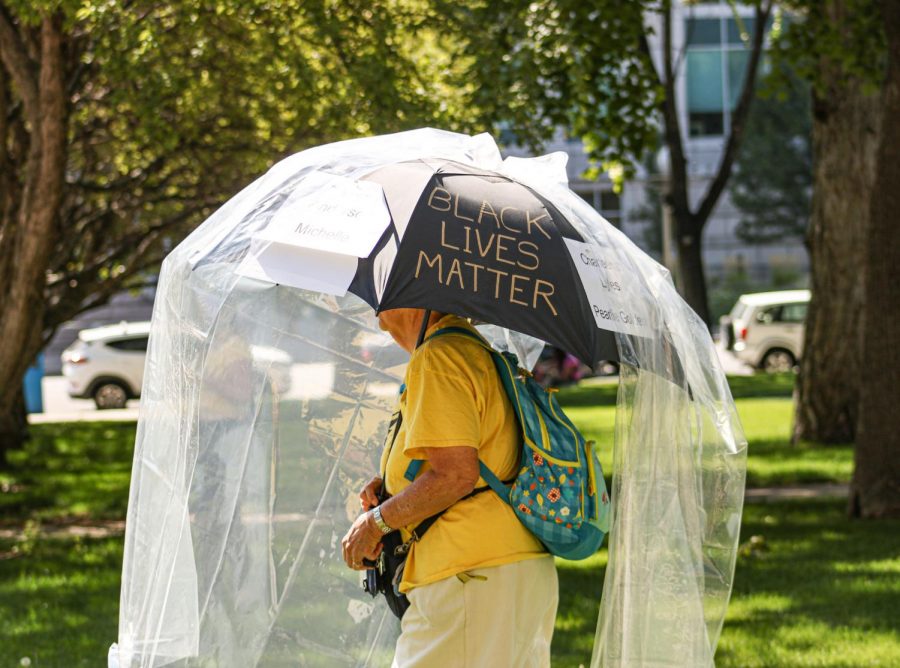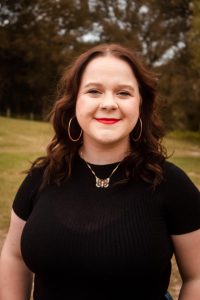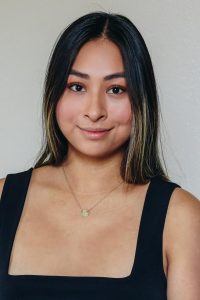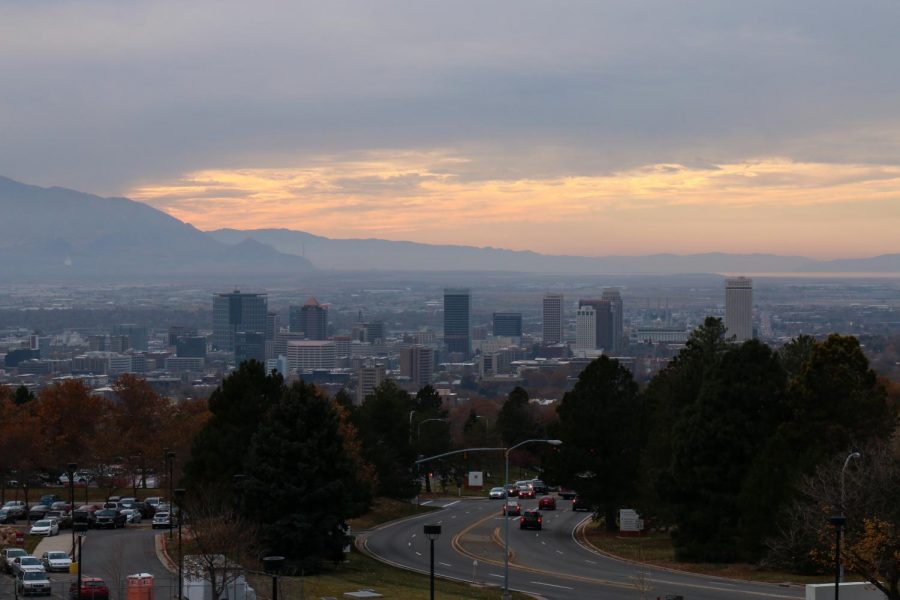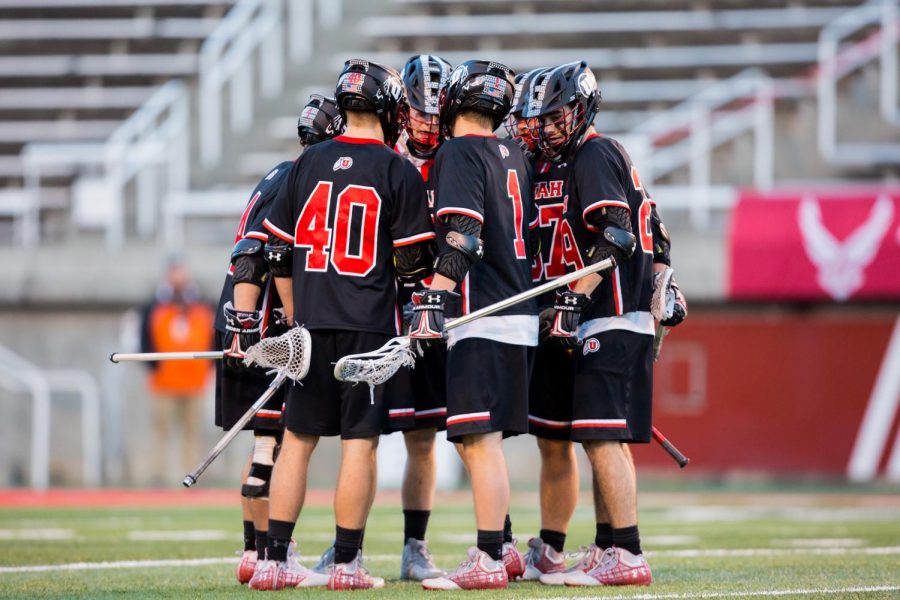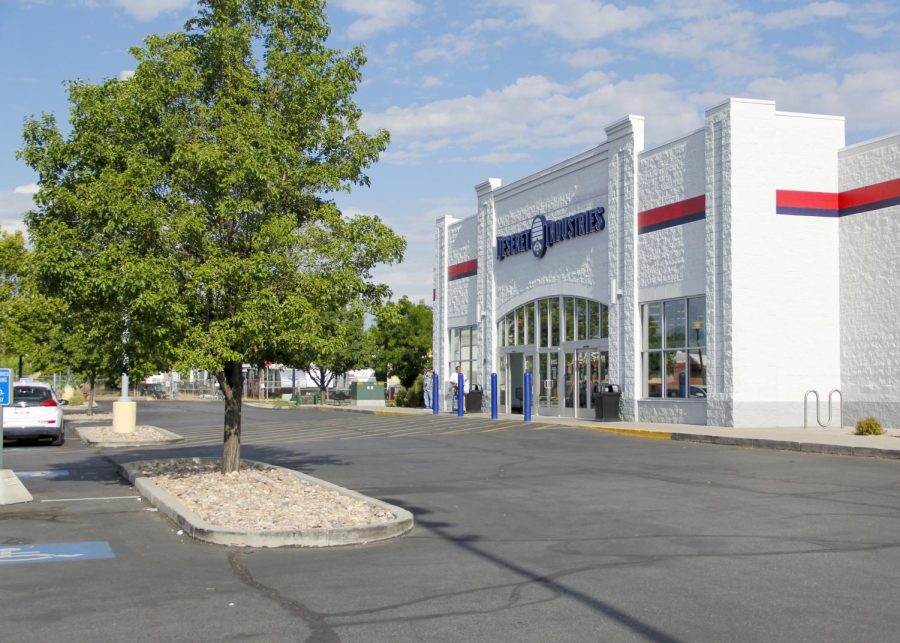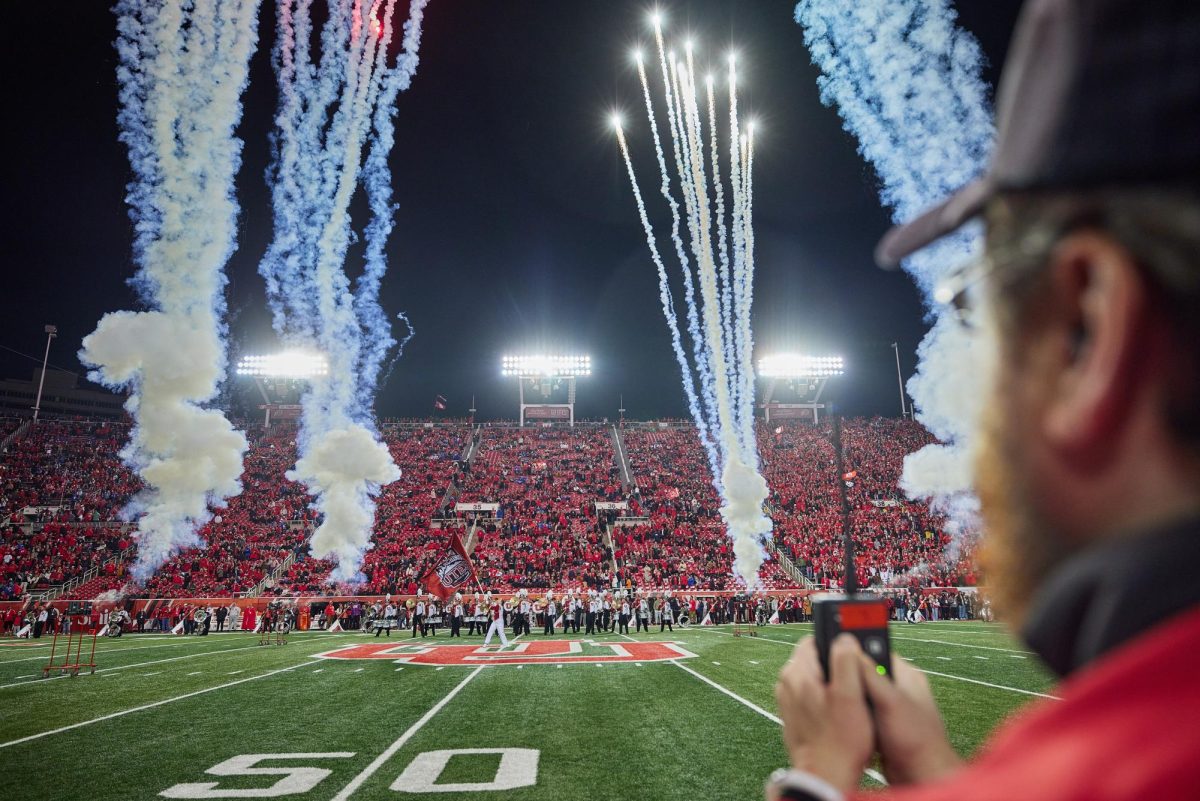Protesters ‘Say Her Name’ in Demonstration Centering Women’s Issues, Local Politicians
Demonstrators attend Say Her Name Protest at the Public Safety Building in Salt Lake City on July 31, 2020.
August 1, 2020
The Salt Lake County Black Democratic Caucus gathered protesters at Washington Square Park on July 31 at 5:00 p.m. to “say her name.” The protest was organized to honor women of color who have suffered from police brutality, using Breonna Taylor’s name as a rallying call.
Taylor was killed by Louisville Police Department on March 23 after they entered her home with a search warrant.
Organizer and member of the Black Democratic Caucus, Angela, who chose not to disclose her last name, said her board of all-Black women wanted to create this event to recognize issues women face and teach protesters how to keep their politicians accountable.
“I think it’s right to have anger. I completely understand, but we also want to educate people on what they can do to change,” Angela said.
Accountability, she explained, starts with first recognizing what entity is over the policy you want to change and then goes to interacting with the entity.
The group of protesters first marched to the Salt Lake City Public Safety Building, where they taped posters to the windows and listened to women from the Latinx, trans, Indigenous and Black communities.
The first speaker was Vonda Eaglehorse, who identified herself as a direct descendant from the Wounded Knee Massacre and from the Lakota and Sioux Nations. She spoke about her ancestors’ fight against the government and advised those listening to stay on the right side of history.
“I can only imagine what this seventh generation is going to do. I really believe that these things are going to be changed. There are too [many] injustices and atrocities and there’s too much blood on these ones’ hands,” Eaglehorse said.
She also recognized the missing murdered Indigenous women who never made it back home.
“I don’t call myself a protester. I call myself a protector,” Eaglehorse said.
The group sitting in front of the Public Safety Building next heard from Tali, a representative from the Latinx community who has kept her last name anonymous. She said the oppressive systems not only originated in the form of slave catchers, but also the Texas Rangers who she said sole purpose “was to brutalize and murder the Mexican and Indigenous for no crimes.” According to Time, from 1915 to 1920 up to 5,000 Mexicans were killed by the Texas Rangers simply for being Mexican.
In the theme of remembering and honoring women, Tali also spoke of immigrant mothers, “our moms.” She described them as those who moved to the U.S. with no knowledge of the language and no resources.
“During the pandemic, they work in your factories. Take care of your elders, make the meat, cheese and vegetables on your plate,” Tali said, “so their children can have a chance at a better life. These mothers who work thanklessly for this country. … Many mothers are undocumented, and live in the fear of deportation so calling the police is not an option.”
Intersectionality, a word used in feminism to highlight the intersection of women’s struggles with the oppression they face because of other aspects of their identity, was a focus of the event. Tali called out not only for the abolishment of the police but also for the U.S. Immigration and Customs Enforcement.
The next speaker was Ermiya Fanaeian, a trans woman and activist who is active in Salt Lake about LGBTQ+ issues.
“The police have a long and dark history of unjustly policing queer Americans, and this history is apparent still to this day,” Fanaeian said. “The national call to abolish the police and to rethink communal safety is indeed an LGBTQ issue that white gay men in corporate offices need to be paying attention to.”
Fanaeian addressed a popular feminist idea of “breaking the glass ceiling,” and said it’s hard to break the glass ceiling when they are being killed by police.
“In order for women of color, trans women, poor women, Muslim women, disabled women to break the glass ceiling, we must first and foremost be allowed into the building,” Fanaeian said.
Addressing intersectionality, Fanaeian said stopping state sanctioned violence against trans women of color is the start for a truly intersectional freedom movement.
“That’s what feminism is about. It is about empowering and fighting alongside women that have to overcome many obstacles in order to reach freedom. Freedom from the police state, freedom from white supremacy, freedom from capitalism and freedom from state sanctioned violence,” Faniean said.
The final speaker, Ray Duckworth, a Black woman, asked three favors of the audience. First to register to vote, second to protect all Black women and last to be involved in the city council and run for offices at the state level.
“Make them hear you and for white allies do not silence Black women’s voices,” Duckworth said.
The group then headed back to their starting place, where they took a brief intermission on the lawn of Washington Square Park to eat from local food trucks and speak with local organizations such as Black Hammer and the Party for Socialism and Liberation in Salt Lake City.
Local women politicians of color, Natalie Pinkney — a member of the South Salt Lake City Council — Angela Romero — Utah House Representative for District 26 — and Shireen Ghorbani, a member of the Salt Lake County Council, spoke about government transparency. They emphasized how to hold politicians accountable and spoke on personal experiences.
Romero encouraged listeners to research their representatives and their voting records. Romero said if constituents don’t like how they are being represented, run against those in office. She also emphasized consistently reaching out to representatives about issues.
“We have heard you, and I think you all have moved the pendulum and some of my colleagues are thinking twice now. So I want to say thank you for being here, for being that voice,” Romero said.
All three spoke about their personal actions to keep communities involved and aware through posting on their social media platforms, specifically Twitter and Instagram, about the actions of their respective groups.
“We are not just talking about politics, we are talking about people every day who are being killed by this system,” Pinkney said. “If you’re officials from a county level, state level, local level don’t understand that then we need to find someone who does, because this is personal and we have lives that are on the line.”
i.martinez@dailyutahchronicle.com



